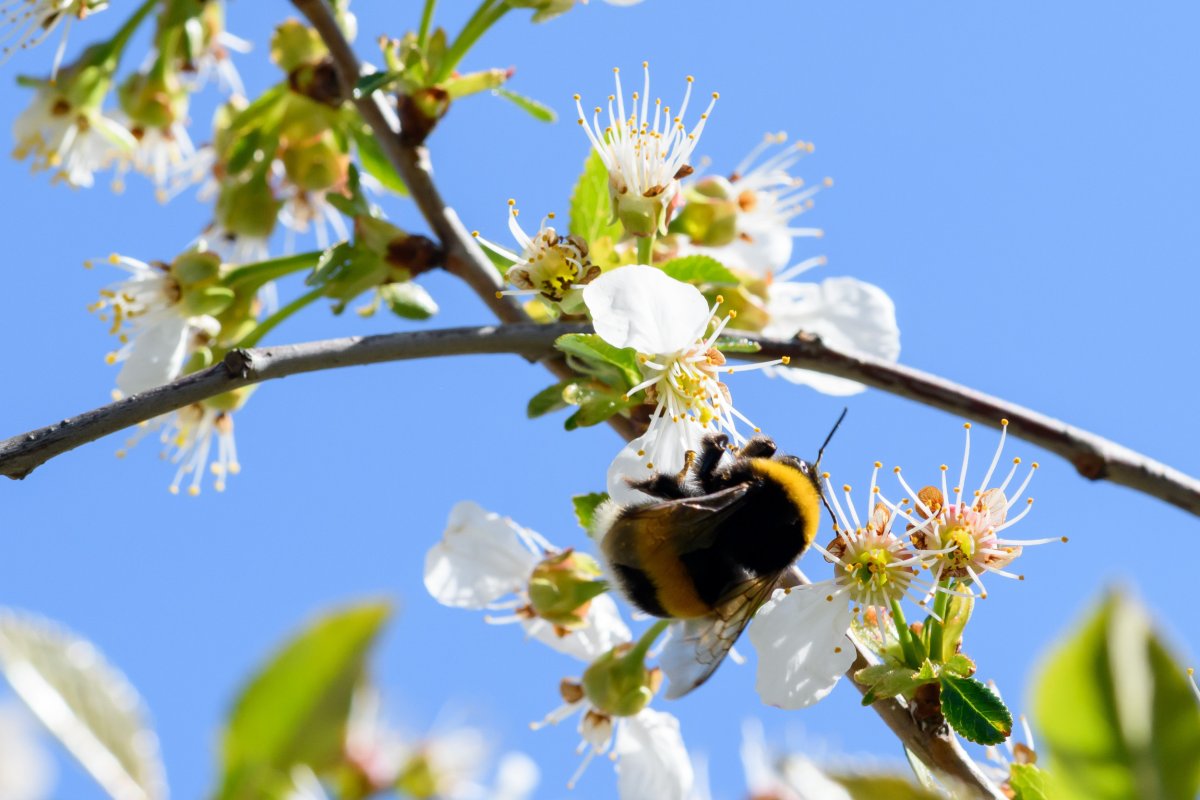Once one of the most commonly found bumblebees in the United States, the population of the American bumblebee (Bombus pensylvanicus) is in serious decline. The U.S. Fish and Wildlife Service reviewed a petition calling for the species to be listed as an endangered or threatened species and found it "may be warranted."
The population has dropped by 89 percent and is headed toward extinction, according to the petition written by the Center for Biological Diversity and the Bombus Pollinators Association of Law Students of Albany Law School.
This sharp decline, the study stated, can be due to a number of factors, including habitat loss, pesticides, disease, climate change, competition with honey bees, and loss of genetic diversity.
"In the last 20 years, the American [bumblebee] has vanished from at least eight states, mostly in the Northeast, and it is in precipitous decline in many more," the study read.

It continued and noted that the population has declined by 99 percent in relative abundance in New York and the species has disappeared from the northern part of Illinois. Live Science reported that according to the Center for Biological Diversity, the bumblebee is no longer found in Maine, New Hampshire, Rhode Island, Vermont, Idaho, North Dakota, Oregon and Wyoming.
"In sum, the American [bumblebee] has become very rare or possibly extirpated from 16 states in the Northeast and Northwest; it has experienced declines of over 90 percent in the upper Midwest and 19 other states in the Southeast and Midwest have seen declines of over 50 percent," the study stated.
According to information published by the United States Department of Agriculture's Forest Service, the American bumblebee pollinates many seasonal wildflowers in the spring. In addition to wildflowers, bumblebees also help pollinate crops and gardens that grow fruits and vegetables.
The Bee Conservancy, a nonprofit dedicated to protecting bees, wrote that bees pollinate one-third of the food that is eaten.
Georgia Parham, who works with external affairs for the U.S. Fish and Wildlife Service, told Newsweek that in the United States and globally, native bees are responsible for most pollination of plants that require insect pollination to produce fruits, seeds and nuts.
"Native bees not only pollinate economically important crops, but provide the foundation of functioning ecosystems," she said.
The Department of Agriculture wrote that the easiest way to help bumblebees is to plant a native habitat.
The study claimed that existing regulations and public land protections are not enough to protect the bumblebees from extinction.
"The states that have seen some of the largest declines of the American [bumblebee] within the past 20 years are the same states that have seen the largest quantified increase in pesticide use," the study stated.
Upon examining the petition and the sources that were cited in the petition, the U.S. Fish and Wildlife Service concluded that the agency will evaluate the potential threats during a 12-month review.
Parham said that potential protections may prohibit harming, harassing or killing any species that are listed as endangered or threatened under the Endangered Species Act.
"Other measures include protection from adverse effects of federal activities and restrictions on transporting and selling listed species," she said. "If our species status assessment leads us to a determination that the American bumblebee warrants listing as threatened, we may propose special rules that provide flexibilities for managing and conserving the species."
Updated 10/12/21, 9:22 AM ET, with comment from Georgia Parham of the U.S. Fish and Wildlife Service.
Uncommon Knowledge
Newsweek is committed to challenging conventional wisdom and finding connections in the search for common ground.
Newsweek is committed to challenging conventional wisdom and finding connections in the search for common ground.
About the writer
Catherine Ferris is a Newsweek reporter based in New York. Her focus is reporting for the U.S. Trends Team. She ... Read more
To read how Newsweek uses AI as a newsroom tool, Click here.








